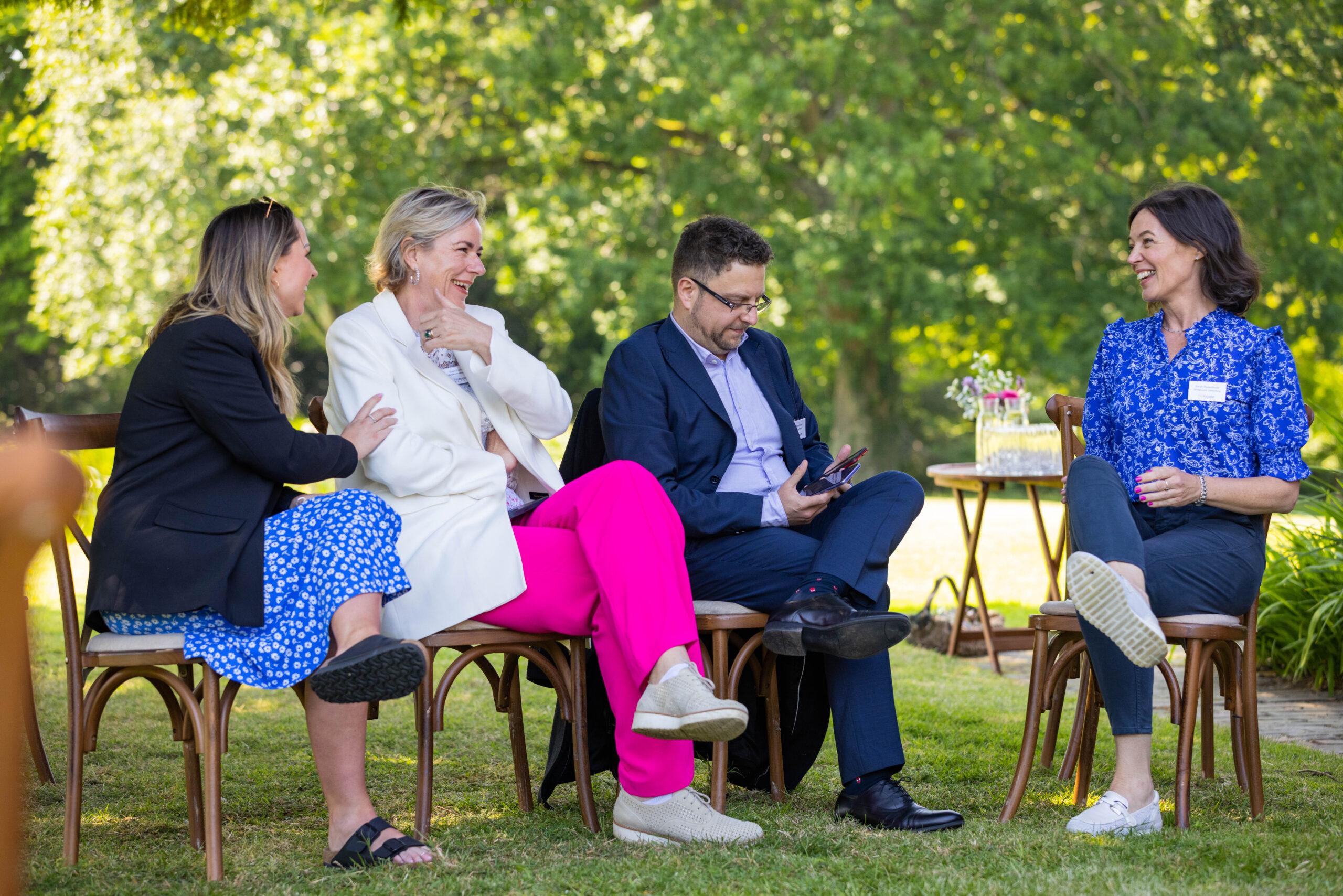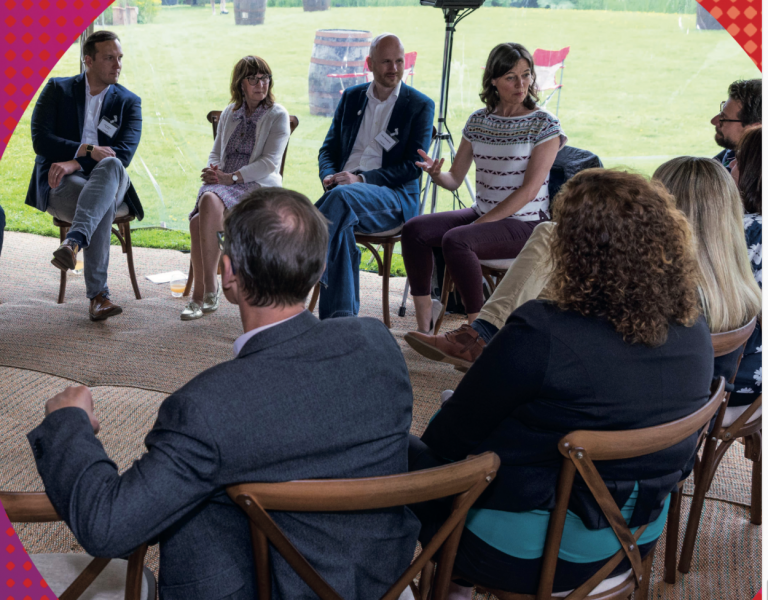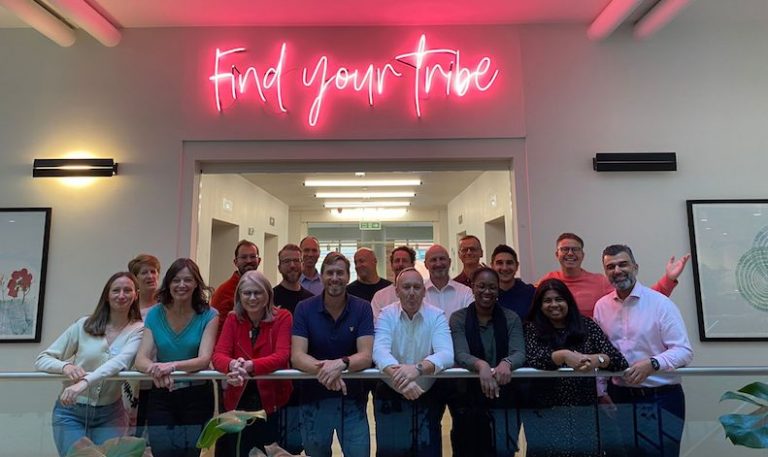The power of positivity isn’t just a self-help cliché; it’s a transformative force that can shape the tone of entire movements, as we’ve seen recently at the Labour Leadership Conference and the Democratic National Convention in the United States. Amidst the often cynical world of politics, Sir Keir Starmer, Rachel Reeves and Kamala Harris are setting a new standard by infusing their messages with a hopeful, forward-looking tone, challenging the status quo of negativity that so often dominates public discourse. This refreshing approach is more than just a strategy—it’s a powerful reminder of how a positive mindset can redefine expectations, inspire change, and turn the seemingly impossible into achievable reality.
In this article, I explore how positivity is a critical component of leadership. It directly affects the quality of dialogue as well as performance, productivity and well-being, as recent research has shown. A positive mindset isn’t static or determined solely by our genes or disposition. We can, as psychologists have found, ‘move the needle.’ Below are three key tools for fostering more positivity in yourself, your team and your organisation as well as some insights into why positivity matters.
The psychology of positivity
Psychological studies have long supported the idea that maintaining a positive outlook can significantly improve mental and emotional health. A 2023 study found that having just one ‘quality’ conversation with a friend each day leads to people feeling happier, more positive and less stressed (where ‘quality’ means listening fully, demonstrating care and valuing another person’s opinions.)
Barbara Fredrickson’s ‘Broaden-and-Build’ model of positive emotions suggests that positive emotions—like joy, gratitude, and hope—expand our awareness and encourage novel, creative thinking. This widened perspective helps us build personal resources, such as resilience, social connections, and problem-solving skills, which are essential for coping with life’s challenges.
In contrast, negative emotions tend to narrow our focus. When we feel anxious or stressed, we become more tunnel-visioned, concentrating only on the immediate problem. This can be useful in moments of real danger, but over time, chronic stress or negativity can limit our ability to find solutions or think beyond the immediate situation. Feeling deficient makes dialogue difficult; we can’t do our best thinking when we’re mired in frustration or agitation.
Research has also shown that positivity impacts not just mental health, but physical health as well. A study from Harvard University found that individuals with an optimistic outlook had a significantly lower risk of developing heart disease compared to their more pessimistic counterparts. Positive thinking, therefore, doesn’t just make us feel better in the moment—it has long-term benefits for our health and well-being.
What you focus on expands
“What you focus on expands” is more than just a saying; it’s a powerful principle that shapes our leadership and our lives. For leaders, the impact of this mindset is profound: when you focus on kindness, compassion, and positive interactions, these qualities not only grow within you but also ripple out to your team and organization. It’s easy to get caught up in the whirlwind of targets, challenges, and criticism, but by intentionally paying attention to moments of kindness—both given and received—you cultivate a culture that thrives on empathy and respect.
One leader I coached decided to make a daily habit of being kind to his team. He took time to chat with a colleague who was struggling with childcare issues. He made the conscious choice to credit team members with successes (even when he’d made a significant contribution.) He also decided to include himself in his ‘circle of kindness’ by allowing himself some time out each week to ‘blob out’, relax and recharge. Over time he noticed that the atmosphere around him had changed from people feeling frazzled to fulfilled. This outer dynamic mirrored his inner state; he felt calmer and more positive too.
Focus on solutions not problems
Solutions-focused coaching is a highly effective, goal-oriented, person-centred approach that emphasises finding practical and achievable solutions rather than dwelling on problems. It helps individuals identify their desired outcomes, leverage their strengths, and build on past successes to create positive change. This approach is based on the principles of positive psychology and focuses on what works, rather than what’s wrong.
Instead of analysing the root causes of issues, the coach (or leader-as-coach) helps a team member to explore what they want to achieve and how they can get there. This approach emphasizes a person’s existing skills, resources, and past successes, building confidence and momentum towards the desired outcome. Goals are defined in concrete, positive terms, enabling team members to visualize success and understand the steps needed to reach their objectives.
One leadership team I worked with identified a shared goal of articulating a compelling purpose for their organisation. An inspiring ‘North Star’ would enable people to pull together rather than stay working in silos. We discussed the design and delivery of a series of ‘Purpose Discovery’ workshops to engage all team members in a dialogue about the enduring and meaningful reason the organisation existed. Six months later, the working group reviewed the outputs of the workshops and, through dialogue, identified the purpose statement that most resonated. Their eyes were bright, their smiles wide and their excitement palpable as they discussed plans to share their purpose with their existing clients as well as attract new clients who resonated with their ‘why.’
See the bigger picture
“The more you lose yourself in something bigger than yourself, the more energy you will have’” wrote Norman Vincent Peale in his classic book, The Power of Positive Thinking. Finding something that’s meaningful beyond yourself helps you gain vitality and enthusiasm.
One study in a call centre amongst fund-raisers found that when they had a conversation with the students who had benefitted from their efforts, their productivity shot up by 400% in some cases. Making an emotional connection with a beneficiary (through even a 10-minute conversation) makes purpose come alive. It also brings home the value of creating ‘local meaning’ (as Dan Cable, a professor at London Business School puts it) rather than being trapped in thinking that purpose is about saving the rainforest or doing brain surgery. It isn’t. It’s about having a positive impact in whichever corner of the world you inhabit.
Conclusion
As we navigate the complexities of organisational life, it’s crucial to recognize the power of positivity—not as a naive denial of reality but as a deliberate choice to shape it. Just as political leaders have the ability to influence the mood of a nation through their choice of words and actions, we too hold the power to influence our personal and professional environments.
By embracing a positive mindset, we not only uplift ourselves but also create a ripple effect that impacts everyone around us. So, let’s commit to being the kind of leaders—in our homes, workplaces, and communities—who champion hope, resilience, and positivity. The world needs it now more than ever, and the change starts with you.
Photo Credit To Think Global People






